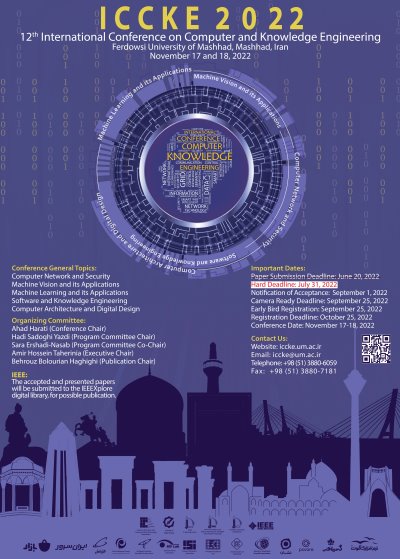0% Complete

Authors :
Keywords :
Abstract :
List of archived papers
Arezoo Rahmati Soltangholi - Ahad Harati - Abedin Vahedian
Amin Rouzbahani - Fattaneh Taghiyareh
Mohsen Arzani - Hamed Vahdat-Nejad - Matin Hossein-Pour
Seyed Reza Razavi Pour - Leila Ahmadi - Amir Ahmad Shishegar
Shiva Sanati - Mahdi Saadatmand
Sajad Haghzad Klidbary - Anahita Babaei - Ramin Ghorbani
Fatemeh Saadatmand - Mohammad Ali Zare Chahoki
Omid Nejati Manzari - Shahriar Baradaran Shokouhi
Mehrdad Mohammadian - Neda Maleki - Tobias Olsson - Fredrik Ahlgren




